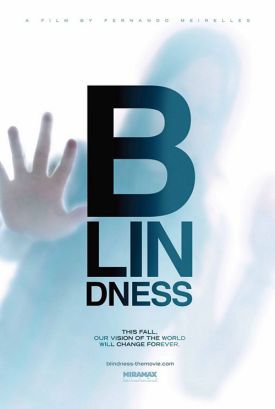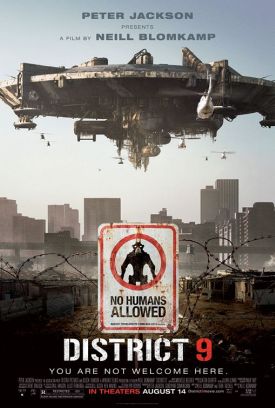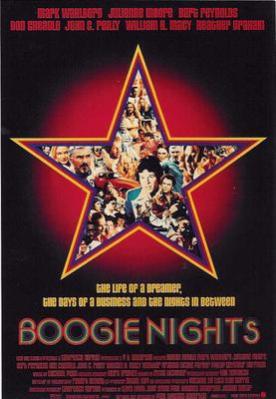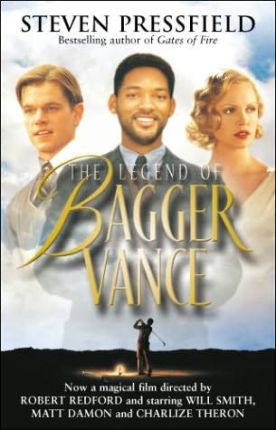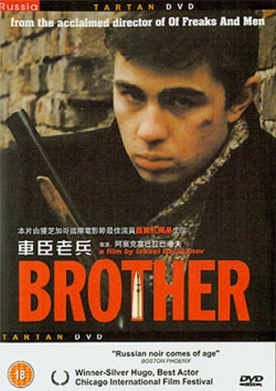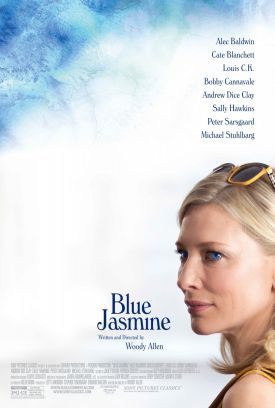Blindness
Blindness, a novel of 1995 which was translated into English in 1999, was written by the Portuguese Communist Nobel Prize winner, José Saramago, in a clever style. Though common to his other novels, it has a particular appropriateness to Blindness — the story of an unexplained contagion which renders its sufferers blind and which spreads rapidly among the population of an unnamed country. Mr Saramago writes without the ordinary visual cues of punctuation and paragraphing, so that you can’t tell immediately who is speaking. None of the characters even has a name. In a way the reader is reduced to the level of the blind dramatis personae, who have to tell everything from a person’s voice alone. Likewise, the narration is all mixed up with the dialogue, so that there is no sense of the narrator as a distinct presence, either omniscient or unreliable. His story-telling can barely be made out against a cacophony of the voices of his characters, reporting their own concerns.
This is a deliberate example of what philosophers call a category mistake, and the loss of the categories by which we attempt to make sense of the world becomes a metaphor not only for the characters’ blindness and the nightmarish world they find themselves living in but also for the larger disappearance, along with the physical ability to see, of the moral vision of a whole country. All this comes across, if not equally clearly, in the new movie based on the book, which was directed by Fernando Meirelles (City of God, The Constant Gardener) from a screenplay by Don McKellar. Though movies are inescapably visual and therefore have a harder time of blurring the categories, either between characters or between characters and narration, this one certainly has a heroic try at it, and it is not entirely unsuccessful.
It helps that the situation of the blind characters — who are shut up in an empty mental hospital under armed guards to prevent them from spreading their terrible disease to others — swiftly degenerates into a nightmarishly Hobbesian (or Marxian?) world in which the strong oppress and exploit the weak without fear of the forces of law and order, who stay as far away as everyone else for fear of going blind themselves. The film is a sort of variation on The Lord of the Flies, only with marooned adults rather than children, in which a sympathetic liberal-minded characters are temporarily overborne and almost destroyed by more primitive, might-makes-right types who have come into their own in a situation of weakened authority giving way to anarchy. Also as in Golding’s novel and the film made from it, a deus ex machina arrives at the end to make it all right for the liberals, who are fortunately not destroyed, instead being left merely sadder but wiser.
Here, the sympathetic liberals are a caring and compassionate ophthalmologist (Mark Ruffalo), who catches the disease when he attempts to treat its first sufferer, at the point when no one knows what is going on, together with his even more caring and compassionate wife (Julianne Moore). Her love and concern for her husband leads her to pretend to be blind — so that she can go into quarantine with him — even though she alone of those who are exposed to the illness (so far as we know) retains her sight. The thug who is empowered by the epidemic, though he suffers from its effects himself, and who proclaims himself the King of Ward Three, is played by Gael García Bernal. He is helped to exercise his power over the liberals, along with his other unwilling subjects, by Maury Chaykin as a man who, having been born blind, suddenly finds himself much better able to cope with the handicap than any of those around him.
The moment of crisis in the film comes when the King of Ward Three, having collected up everyone else’s valuables as the price of releasing the government-supplied food ration (or a portion of it) that he has taken charge of, announces that now those in the other wards, if they want to keep eating, will have to send him their women. There follows the briefest of moments when we see the shock of liberal and feminist pieties and assumptions about the world confronted with genuine evil and not just “sexism” and the other imaginary ills and oppressions of the so-called Patriarchy. It quickly fades. One woman insists on being raped rather than submitting to be bossed around by her husband, while the sensitive, liberal-minded doctor greets the news with what, in the circumstances must look like Solomonic wisdom: “I think we should ask if there are any volunteers. People should do whatever they feel like doing, according to any morality they feel they have left.”
I’m sorry to say that the sublime comedy of this moment of self-delusion and what ought to have been — but of course isn’t — a swan-song or dying hymn to the liberal gospel of feeling was not intended, either by the author or the film-makers. This is a great pity, because that black humor is the only thing in the movie that could possibly have saved it from its own, terminal compassion. For behind this film there lurks that most characteristic feature of all the features of the progressive, liberal worldview, namely a fear — or is it, perhaps, a hope? — that “reality,” which is to say the moral model we all have to live with, is of goodness rendered helpless before the irresistible force of evil.
That, you may remember, was also the conceptual model on display in last year’s Oscar-winner as Best Picture, the Coen brothers’ No Country for Old Men, so the auguries may be good for Blindness — if not so good for the culture which is increasingly paralyzed by similar assumptions. Whatever its other shortcomings, the movie does at least as good a job as No Country at flattering the liberal audience’s sense of its own fine feelings. So many objects of compassion, so little time! We may even want to add these poor, fictional blind people to the almost equally fictional victims of Darfur or Rwanda (for do we not also see them only in the form of flickering images on a screen?) — or any of the others of what the King of Compassion, the celebrity-philosopher Bernard Henri-Lévy, calls the world’s “black holes.” And the beauty of it is that we can all just do whatever we feel like doing, according to any morality we feel we have left.
Discover more from James Bowman
Subscribe to get the latest posts to your email.

